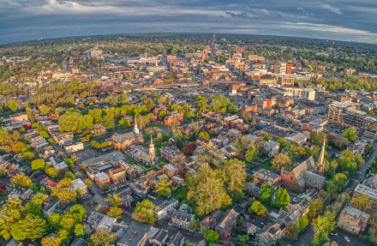Social action has always been vital for communities, especially those which are most disadvantaged and marginalised, and has contributed to securing much progressive social and environmental change for over a century. It has also offered protection to communities at risk of/actually suffering from social and economic injustice.
Sadly, I suspect this will be ever more the case over the next five years. Austerity and related government policies have fuelled social injustice, poverty, a decline in social mobility and a range of social crises such as homelessness, precarious employment and the social care crisis. And to the latter, we must now add the existential threat of climate change, now a prime focus for social action as we have seen with school student strikes and Extinction Rebellion.
Communities are increasingly organising to challenge orthodoxy in government and business; and to challenge inequality, privilege and economic as well as political power. To coin a phrase, communities want “to take back control” - and social action is seen as a prime means of doing this.
It's about people coming together
To be clear, I am defining social action as being about people coming together to help one another improve their lives and solve the problems that are important in their local communities and, potentially, the wider country or even world.
Such social action can be: formal or informal; planned or spontaneous; short or long term; loosely orchestrated or managed. And, sometimes, it may start informally and subsequently morph into more formal arrangements.
It may manifest itself in a variety of forms including: practical action to provide services; undertaking some activity for the community; agitating; or campaigning. Indeed, some of the most successful examples of social action over the decades have been a combination of practical and political activity. Typically, it involves mobilising people (either in person or through virtual communities) to achieve ends determined by the participants, or to stop others (often government, local government and local NHS, public bodies or corporations) from achieving stated or unstated objectives when these are deemed by activists to be against the local or public interest.
Local social action is usually “place” or “neighbourhood” based and may be fostered (and indeed activated) through local voluntary and community sector (VCS) organisations. However, it would be a mistake to assume that VCS is the only (or increasingly the primary) source of social action. That said, contemporary VCS organisations and their local infrastructure and membership bodies do (and should) increasingly see their role as nurturing/facilitating social action, and supporting but not directing social activism.
Further, they should recognise that social action is to be encouraged and never seen as a threat to the VCS. Of course, it is very possible that social activism will, on occasion, be directed at VCS organisations themselves - which may lead to new VCS bodies emerging to challenge or even replace some existing ones. This is very healthy but a challenge for those VCS bodies that cannot see the future, remain relevant and adapt.
Not a substitute for public services
Social action should not, in my view, be a substitute for government action, tax- funded public services or an excuse for public bodies cutting services. That said, it may be used to meet human needs on a temporary basis, when public services are cut and there is desperate need to be met. This is the case, for example, with food banks, but social activists can still campaign for change and public investment whilst undertaking practical action.
Over the next few years, I hope social activism will attempt to push back austerity and other harmful public policies. And I hope that social activism will tackle xenophobia head on and offer support and inclusivity to all our fellow citizens and in particular over the next period our friends from EU countries.
I am confident that social activists will rise to these and other contemporary challenges. They will continue to organise in their communities and enable innovative solutions to intractable problems; lead campaigns for a fairer, inclusive and more equitable society; and partner with trade unionists to campaign for fairness at work and for a fairer economy.
At its core, however, I believe that social activism must address and press for long-term and sustainable solutions to the causes of inequality, injustice and the environmental crisis – and not simply aim to provide Elastoplast and temporary fixes.
John Tizard is an independent strategic advisor and commentator. He is currently a trustee and charity chair and chair of a CIC.
Related articles












